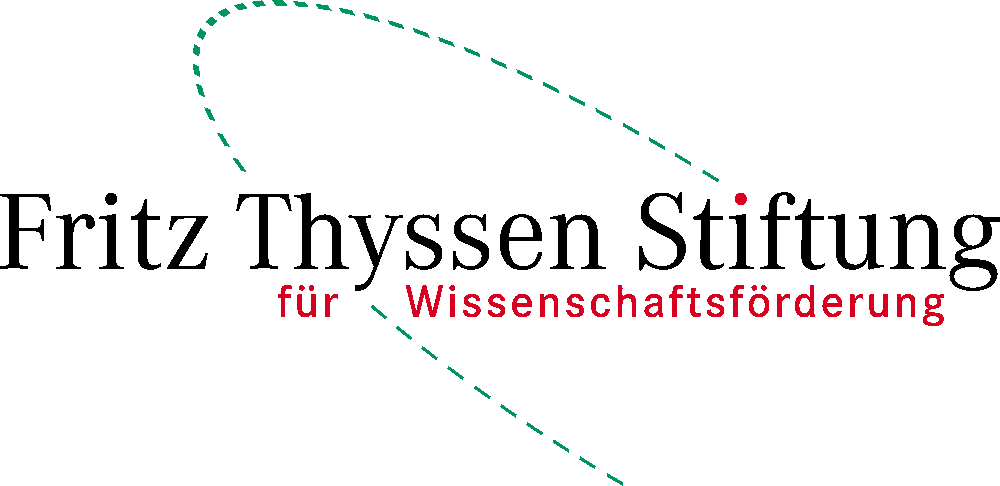Joseph John Freeman an Wilhelm von Humboldt, 02.12.1831
Tananarivo, 2nd Dec 1831To Baron Will.m Humbolt |sic|
&c &c &c
My Dear Sir,
I must throw myself[a] on your kindness to forgive me for having so long delayed replying to your most obliging and valuable communication of ____.[b] The fact is I had left Mauritius when your letter arrived there. I was spending some time at the Cape of Good Hope. There, through the obliging care of His Excellency Sir Charles Colville, I received your communication, but of course some delay had been occasioned by having to forward the letter from Mauritius to the Cape. And, at the moment of its coming to hand, I was busily engaged in preparing for my return to Madagascar, and could not command sufficient time to do myself the pleasure of acknowledging the receipt of your favor. I resolved on occupying part of my time during the voyage, in replying at length to your highly useful and interesting suggestions and inquiries respecting the Malagasy language, – and I confess I felt most deeply mortified, when on examining one day in my cabin, my Letter Box, I found I had left your letter at the Cape. On reaching Tamatave I sent back immediately to my friend in Cape Town, under whose charge I left my letters &c, requesting him to forward your communication to me, without delay. I have no doubt it is now on its way, – and instantly it comes to hand, I shall consider it one of my first duties, to give you as full as explanation as I can of the various points you have suggested. I feel almost ashamed to intrude on your attention with so lenthened |sic| an apology and explanation, but that I am anxious to exonerate myself from the charge or even the appearance of neglect, – and I will only add, that making arrangements for my family’s return to Europe while I might spend a couple of years or so again in Madagascar, – and preparing to bring with me to this vast country, an immense supply seeds, plants &c, horses, merino sheep &c &c really absorbed all my time & attention.
Should your letter reach me before I have an opportunity to forward this, I purpose entering on the various critical inquiries you have made. Should it not come to hand so soon, I must be content to remark on one or two of them as they occur to my memory.
And first with regard to the term for God. Andriamanitra is the general expression used by the natives, in this the interior of the Country. On the coast Zanahary is more common, or as I have somewhere seen it spelt Zanhar. I think in Flacourt. The Malagasy very frequently combine the two names “Andriamanitra Andriananahary.” They do not appear to possess any definite ideas respecting the origin or the form of these different names. Andriana, signifies as you justly suppose Sovereign, Prince, Nobleman, – and hence in speaking of the reigning Sovereign, the usual expression is Nag Andriana – says so & so – does so & so. The final a has been added merely in accordance with the general analogy of the language. It is not sounded, and for my own part I should prefer to omit it. And the first letter is usually sounded very softly. – The word might almost be spelt ‘ndrīan (sounding the i as in French,/ and you would have the native sound. It is no doubt the same word that Drury gives “Dean” as used by the natives in the southwest, as copied by Crawford |sic| in his Vocabulary [c]. “Andriambaventy” signifies “a great noble”, – or “nobleman” and is always here applied to the Judges. The baventy you will recognise as the Vaventy of the Malagasy, signifying great; – V, changed into B in composition after M and N changed into that M first gratiâ euphoniae. In some Provinces Maventy is used for Vaventy. Venty also signifies large, full; – e. g. Vary iray venty one large Rice, – i. e. one full grain – being the smallest amount known in the names of the Malagasy money equal to the 720.th part of a Dollar. Venty means also a Unit, and is at times used in that sense. Manitra (to return from the digression/ signifies sweet – that is, to the Smell, for to the Taste mamy is used, as “sira mamy,” sugar, that is salt sweet – sweet salt. Now, here is only the word manitra is applied to God, being appended to Andriana, (na lost in composition/ is it difficult to divine. The Natives cannot explain it. Etymology they are yet not familiar with, & they have not any custom that explains the use of the word in this particular connexion. Lanitra is heaven – the Langhitz of some authors – (n – is pronounced ng on the coast – ן of the Hebrews – & tra final is usually sounded tz by the Sakalaves and other people near the Sea;/ but then the analogy of the language would certainly require Danitra Andriandanitra – as Andrian-dahy – when the l of lahy (male/ is changed into d./ This word of course means a Nobleman in distinction from Andriam-bavy (vavy female) a Noblewoman. If Andriamanitra signifies Sovereign of Heaven it is a formation of the word quite unique in the language and is a glaring exception to a rule, otherwise universal. As the word stands, it means rather The Sovereign sweet – or scented. Possibly there may have been originally some incense some ceremony of using Sweet incense in the appointment of their Kings; – and the word then used might refer to this, – and have been retained in the language to the present time, tho’ its reason, & the custom, have been lost by the lapse of time. There exists still some custom of anointing the Sovereign on succeeding to the throne, – and I rather think, that it is the particular act of anointing that confers the public right to the crown – or rather, recognition of that right of the party claiming the Empire|?|, – and corresponding in some degree with our public coronation in Europe. (By the way, crowns have been hitherto unknown in this country. I believe I have the honor of introducing the first. I brought one with me on my return from the Cape – & which now in the possession of the Queen, Ranavalona.)
Although Andriana is the common expression for the Sovereign, Mpanjaka is also in very frequent use. It is the noun, or participle of the verb Manjaka. Jaka is the root – and is pronounced Dzaka – it signifies to be able or competent to do a thing; – as in speaking of a person unable to lift a certain weight – or to carry a load, that is found too heavy for him, the familiar expression would be “Tsy jaka izy” – “not able he” – i. e. he cannot – he is not equal to it. Man – is evidently the formation of numerous verbs and is derived from Manao to do or act, and here as in many other cases, it seems to take simply the form of to be – “to be able” – “to be competent” – “one who can manage” – “can effect” – “can do” – & therefore having power, authority &.c as a Sovereign.
Andriananahary & Zanahary I regard as radically the same. Hary is the root – signifying possessions – propriety – wealth – and may here refer to the Universal proprietorship vested in the Deity, as Lord & owner of the Universe – or as the Natives express the idea “Tompo ny lanitra sy ny tany” – “Tompo ny izao tontolo izan” – “Lord of this all this.”
Why it is Andriananahary instead of Andriazanahary I know not – but I think the genius of the language prefers the sound of N generally and especially in composition (Neny is common for Reny a mother) Maniana signifies to have. Zana – may be for Zanaka a Son – final k is often lost – always in Zana’ny his Son.
On the subject of publishing any Grammar or Dictionary in this language, I have no expectation |sic| I have no expectation |sic| that anything of the kind will be effected here, or by our Society in London, at present. We possess abundance of materials – our collections of words – phrases – & native expressions, Kabars|?| – & compositions of all kind are immense, – but we could neither command sufficient time to arrange them for a respectable publication, – nor are we assured that the expenses incurred would be at all indemnified in any quarter, because there |are| so few who would feel much interest in the undertaking.
I should delight to see something of the kind from your pen. You have gained a highly respectable acquaintance with the language in its leading characters & any work you might publish would form a valuable guide to any further publications or illustrations on the same subject, more especially if your comprehensive acquaintance with other Oriental Languages were made to bear on the history & illustration of this.
I have the honor to remainMy Dear Sir
Your very faithful
& obliged Servant
J. J. Freeman
Fußnoten
- a |Editor| Zu dem englischen Missionar Joseph John Freeman (1774–1851) siehe Gerald H. Anderson (1998): Biographical Dictionary of Christian Missions, New York: Macmillan, S. 225. [FZ]
- b |Editor| Lücke im Manuskript.
- c |Editor| Gemeint sind damit die Wortlisten im 2. Band der History of the Indian Archipelago, S. 125–192.


